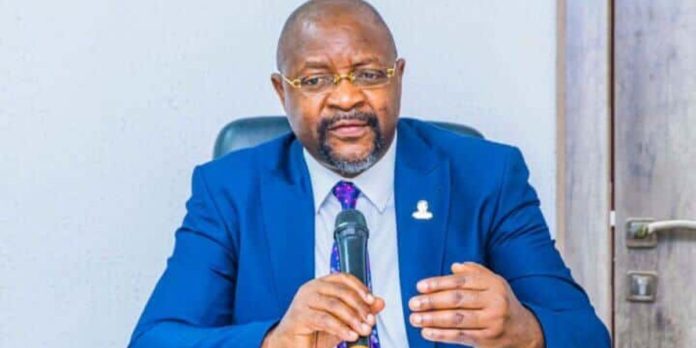Media and Public Communication, Sunday Dare, has assured that the President is committed to ensuring a safe and conducive environment for journalists.
Dare acknowledged the challenges of practicing journalism, emphasizing its crucial role in holding power accountable.
In an interview with News Central, he stressed that factual and ethical journalism remains irreplaceable.
“In a world where everyone is a journalist it is difficult to chase down factual stories. More worrisome is the attacks professional journalists face. There can be no substitute for fact based ethical journalism. And even with that journalists get arrested and interrogated. It comes with the terrain. Under the military it was worse. President Tinubu respects the media and will protect journalists,” he said.
The former Minister of Youths and Sports stressed the need for journalists to arm their reports with facts.
While recalling the harsh environment journalists operated under the military regimes before 1999, Dare noted that the return to democracy in 1999 lessened attacks on journalists in the country.
“If you sign up to be a journalist, it’s not a bed of roses. You must be ready for a crackdown, you must be ready to be arrested, you must be ready to be interrogated, you must be ready to be challenged even when your stories are fact. In fact, when you get picked up often, it’s because your stories are correct, you must be ready for that. If you come in with a different mindset, then any little invitation, any little attack gets to you.
“So, back up to the Babangida Abacha era, it was worse for us. We went into guerrilla journalism at that time, it was virtually impossible to write a story and not get clamped down upon. Most of the media houses were shut down, the Guardian was shut down, Tell was shut down, the news magazine was shut down. Because of media editors were declared wanted, a persona non grata across the country, people went abroad. That was under the jackboots, under dictatorship, that was worse. That was when NADECO came up.
“The current President who funded NADECO was also sent to jail and then he escaped to exile. That was when journalism was really under complete assault. And I’m telling you, over the years, with the return to democracy, in 25 years, I’ve seen the freedoms and liberties of journalists really improve.
“Across the world, there’s no society where the journalist is not an endangered species. But the inoculation you must have is that your stories must have integrity, must be fact-based, and if they take you anywhere, you will still thrive. And I think that’s the challenge we face,” he stated.
According to reports, under Tinubu’s administration, some journalists, including Fisayo Soyombo of the Foundation for Investigative Journalism, have faced detention by security agencies for several days without trial.

